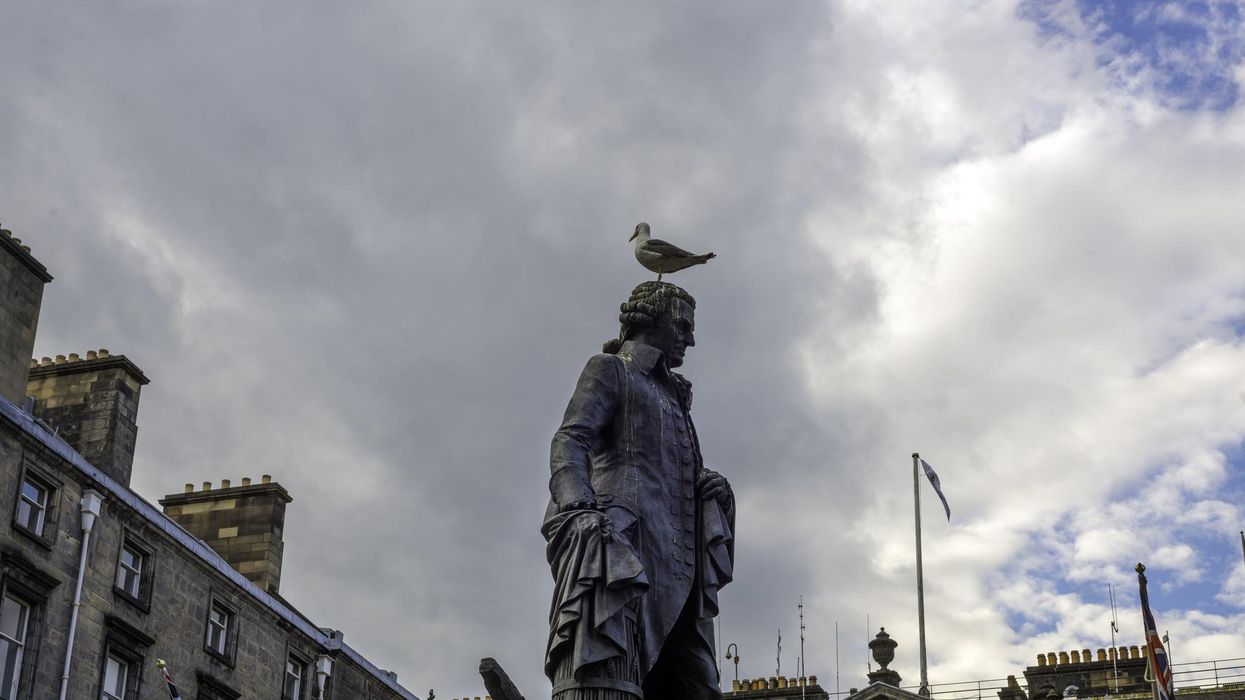O’Rourke, a senior at Emory University studying economics and philosophy, is an intern at the Bridge Alliance.
In the middle of the Scottish enlightenment in 1776, the premodern social scientist and moral philosopher Adam Smith published what later became the magnum opus of free-market capitalism. “The Wealth of Nations” became the starting point from which the academic field of economics emerged and societies organized their economies.
Smith’s primary insights are familiar to those who have studied economics: If individuals specialize in a particular task and pursue their self-interest, then the “invisible hand” will promote beneficial social and economic outcomes for all. In many ways, it seems as if Smith hit the nail on the head; since the time of writing, nations that have embraced free-market principles have witnessed unprecedented leaps in their standards of living and quality of life — oftentimes as a direct consequence of individuals’ pursuing their self-interest.
Over the past several decades, however, Smith’s invisible hand theory has been increasingly scrutinized, evidenced by calls from both the right and the left to interrupt the operations of the free market for the sake of the common good. Liberals, though historically proponents of free markets, began to contend that laissez-faire economic systems allow certain individuals and businesses to accrue immense wealth at the expense of the remainder of the population. Similarly, many conservatives are challenging the efficacy of the free market, pointing to the newfound poverty in geographies that were once areas of great prosperity, such as the industrial Midwest. The culprits of this decline — globalization and technological advancement — are unmistakably the offspring of free market capitalism.
The typical retort of Smith sympathizers is that the corporations at the top — such as Amazon, Walmart and Apple — benefit the masses in the form of lower prices and socially beneficial innovations. They also argue that capitalism does not guarantee the prosperity of everyone (especially former factory workers in middle America), and that economic progress often entails “creative destruction.” And while there is undoubtedly some validity in these responses, Smith’s challengers are pointing to a more fundamental issue associated with our economic system: the decay of our social and communal fabric. That is, despite our economy and standards of living growing to unimaginable heights, more and more individuals have felt increasingly estranged from their communities. Those who challenge the free-market orthodoxy point to the rampant individualism and self-interest embedded in “Wealth of Nations,” arguing that the ethic of individuality does not promote optimal social conditions.
So was Smith wrong? Is the degradation of our communities a necessary side effect of Smith’s free markets? To answer these questions, it is helpful to transition from looking at Smith as a social scientist to Smith as a moral philosopher.
In Smith’s only other published work, “The Theory of Moral Sentiments” (published before “The Wealth of Nations”), he argues that humans are social creatures who are naturally endowed with “mutual sympathy,” or regard for others. Although many observe a direct contradiction between Smith’s conception of mutual sympathy and his ethic of self-interest, the celebrated Scot remedies this confusion. To live morally, according to Smith, mutual sympathy must be baked into our self-interest. That is, the flourishing of others — especially those with whom we are closest, such as our families and communities — ought to be a necessary component of our individual well-being. For a society to flourish, then, this regard for others must be observable throughout all social systems, not least of which being the economy.
Unfortunately, most participants in today’s market economy have an impoverished understanding of Smith’s vision, conflating self-interest and selfishness. Indeed, Smith explicitly disapproves of selfishness, writing in “The Wealth of Nations,” “all for ourselves, and nothing for other people, seems, in every age of the world, to have been the vile maxim of the masters of mankind." While Smith advocated for economic liberty, he operated under the assumption that the members of society behave ethically, baking mutual sympathy into their calculation of self-interest.
Thus, it seems that the timeless economic debate over the extent to which the government should intervene in the free market misses the heart of Smith’s contribution. Smith’s foremost concern would likely be the paltry moral character of many in our society and economy. Therefore, those looking to promote mass flourishing should primarily be interested in promoting the moral composition of our society. Specifically, this means expanding our narrow vision of self-interest to include mutual sympathy and restoring a vision of the common good.
Unfortunately, pure individualism and selfishness are now so ingrained in our culture that a radical response is necessary. “Radical Decency” — a term coined by social activist Jeff Garson and the title of his recently published book — sets out to do just that. He argues that by allowing our social lives to be guided by values such as respect, understanding and empathy, we will slow the degradation of our communal fabric and overcome the toxicity of our culture. Garson believes that incorporating decency into our economic lives is one way to ensure that Smith’s mutual sympathy is not lost.
Surely, a thriving economy requires individuals to respond to price and profit incentives — and incorporating radical decency in our economic lives does not mean totally disregarding economic efficiency. It simply means that we would be remiss to ignore Smith’s emphasis on mutual sympathy and his desire for human and communal flourishing — not the dog-eat-dog world of distrust, selfishness and greed in which we currently find ourselves. We must remember mutual sympathy and radical decency.



















Trump & Hegseth gave Mark Kelly a huge 2028 gift